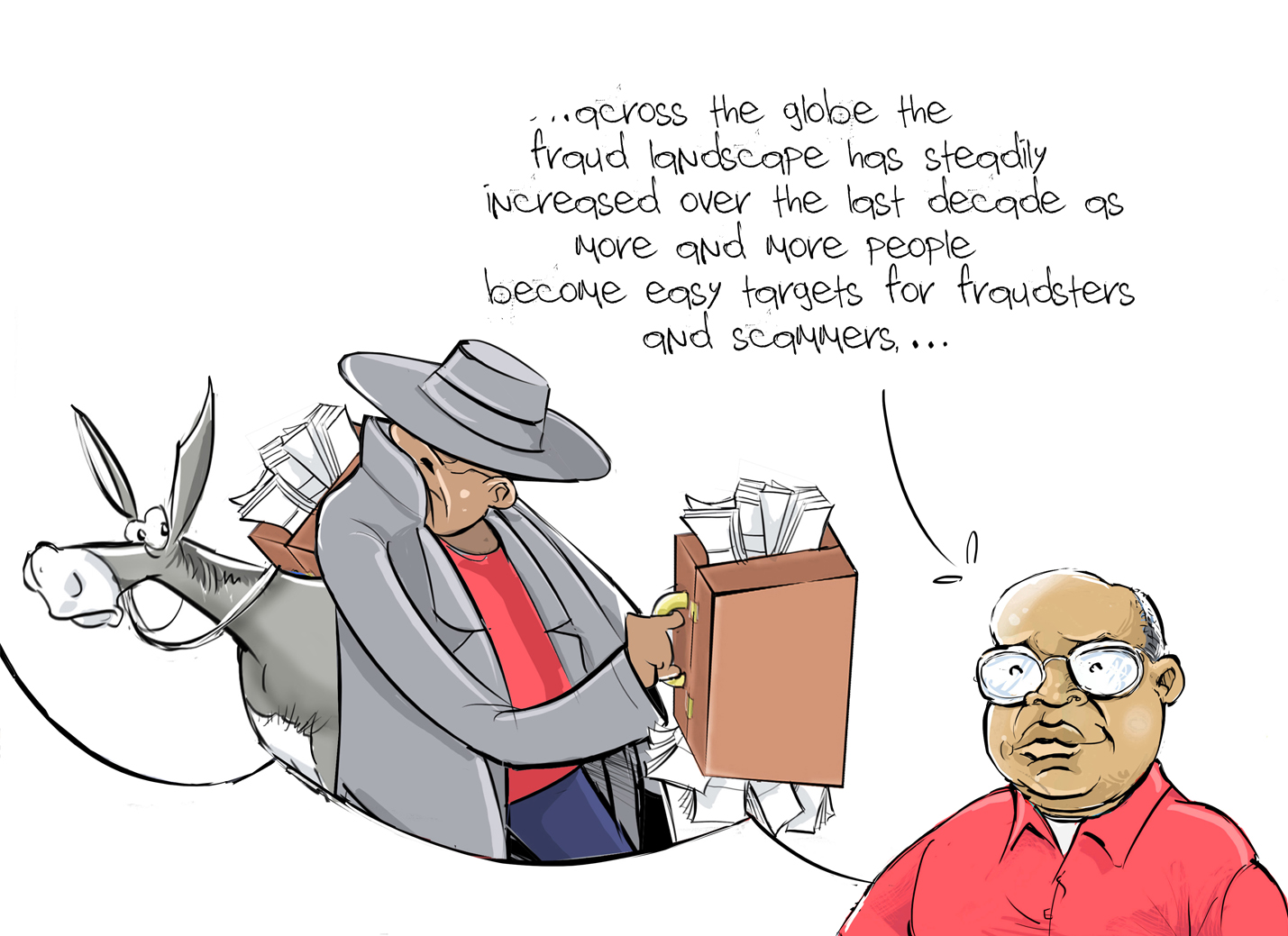
G-SPOT: Someone explain how KK runs the economy
It seems the government is more keen on ruining the economy
A sucker born every minute gives more reason to beware
In Summary

Audio By Vocalize

Across the globe and in all walks of life, the fraud landscape has steadily increased over the last decade as more and more people become easy targets for fraudsters and scammers, who remain as highly motivated as ever to find their next victim.
Last year, South Africa's Southern African Fraud Prevention Service (SAFPS) statistics painted a grim picture, showing that fraudsters and scammers had become increasingly creative in their scams.
One of the growing trends they flagged was “money muling”, the most common form of which is when a victim is approached by someone claiming that they need to receive money from a family member in another country and a bank account to perform this transaction.
This was reported to be a significant issue, and many South Africans were becoming willing victims. Many want to help and willingly let these fraudsters use their bank accounts.
While this may seem like an innocent crime, research from Cifas (a fraud prevention service) in the UK points out that money-muling funds activities, such as drug and human trafficking and terrorist activities.
In South Africa, the repercussions of being a money mule are significant. The guilty party will be listed with the SAFPS, resulting in the individual struggling to get access to finance for up to a decade.
Money muling would be difficult but not impossible to pull off in Kenya, where money mobile services are available across the board. As the saying goes, there is a sucker born every minute.
Remember the 2019 fraudulent gold scheme that came to light? It involved con artists who duped foreign investors by promising to sell them large quantities of gold.
There were allegations at the time about several Kenyan politicians being linked to the scam, either as facilitators or beneficiaries. No surprises there, if you know the mentality of our get-rich-quick and, at any price, political players.
After all, who can forget when Tana River Senator Danson Mungatana fell victim to a fraudulent scheme orchestrated by an individual posing as a West African witch doctor?
Between April 2011 and April 2013, Mungatana was deceived into believing that investing substantial sums of money with this individual would yield significant returns, particularly in the oil industry.
I recall reading in this newspaper that the scheme began with Mungatana investing Sh500,000, which was purportedly doubled to Sh1 million, fostering a false sense of trust.
Encouraged by these initial returns, he went on to invest larger amounts, including mortgaging his Sh70 million home in Karen.
Ultimately, Mungatana lost about Sh76 million to the scam, resulting in severe financial and personal repercussions.
As I was writing this, I received a media statement from the South African Justice ministry alerting the public to a Facebook scam “targeting” the minister.
According to the statement, the minister’s “Facebook account has been compromised. An individual or group has illegally gained access to the account and is using it to solicit potentially illegal opportunities and send messages about potential projects to unsuspecting individuals.
“The ministry condemns this illegal activity and warns the public to be cautious and not fall victim to this scam.
“Please note that [the minister] has not sent messages about project opportunities to anyone. Impersonating the minister or anyone else is a serious criminal offence, and offenders will be prosecuted to the fullest extent of the law.”
They urged the public to remain vigilant and report any suspicious activity to the authorities immediately.
This South African alert made me think, some might say somewhat uncharitably, about Kenya’s Labour Secretary Alfred Mutua, who has been posting messages on his social media about job opportunities in places such as Dubai.
What if his social media has been hijacked by scamsters? Since our government officials never admit that anything is wrong, would we ever know? Or would it be blamed on political rivals?

It seems the government is more keen on ruining the economy